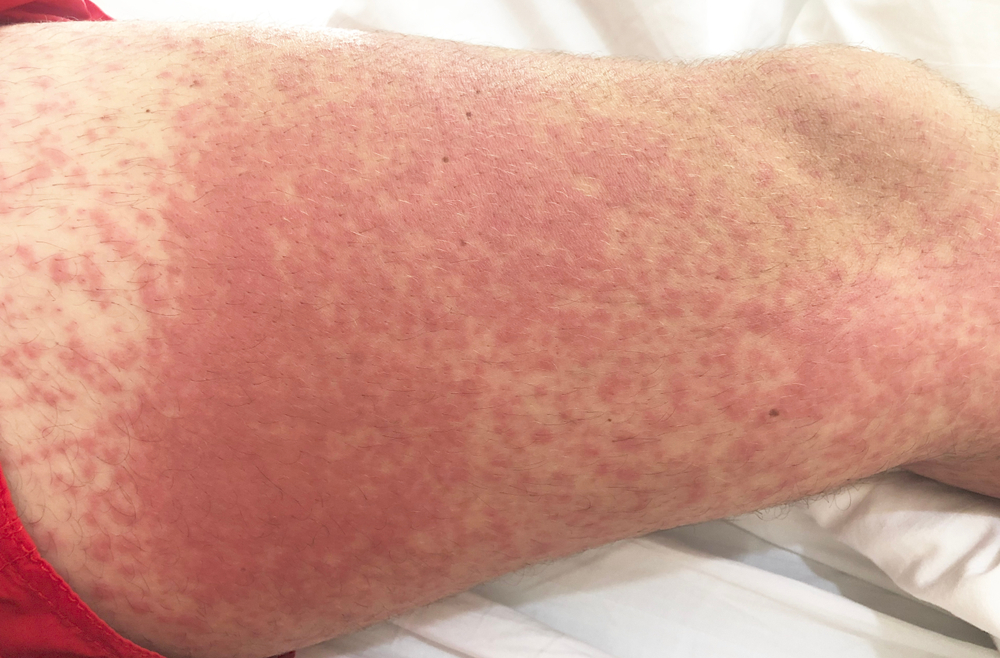Itchy skin might seem like a minor inconvenience, but for people with kidney disease, it can be a frustrating and persistent problem. You may be wondering — what’s the connection between kidney health and skin rashes? Well, when the kidneys don’t function properly, toxins build up in the body, leading to various skin issues.
In this blog, we’ll explore why kidney disease can cause skin rashes, what symptoms to watch out for, and practical ways to find relief. By the end, you’ll have a clearer understanding of this uncomfortable symptom and know when it’s time to seek medical advice. Let’s get into it!
Why Does Kidney Disease Cause Skin Rashes?
The kidneys play a crucial role in filtering waste and balancing essential minerals in the blood. When they start to fail, toxins and waste products accumulate in the body. This buildup can irritate the skin, causing rashes and relentless itching.
Several factors contribute to skin issues in kidney disease, including:
- Uremic toxins: Waste products that should be filtered out by healthy kidneys can cause severe itching and skin changes.
- Calcium and phosphorus imbalance: When kidney function declines, calcium and phosphorus levels can become imbalanced, leading to dry, scaly skin and painful rashes.
- Nerve issues (uremic pruritus): Kidney disease can affect nerve function, triggering itching even without visible skin irritation.
Understanding these underlying causes helps you make sense of why your skin might be reacting this way. The good news is that recognizing the connection is the first step toward finding relief.
What Do Kidney-Related Rashes Look Like?
So, how can you tell if your rash is related to kidney disease? The symptoms of kidney-related rashes can vary, but some common signs include:
- Dry, flaky skin: Persistent dryness that doesn’t improve with moisturizer.
- Red or purple patches: Discolored areas of skin, sometimes with a bumpy texture.
- Intense itching: An uncontrollable urge to scratch, often worse at night.
- Cracked or bleeding skin: Excessive dryness can cause skin to crack, leading to pain and infection risk.
These skin changes can appear anywhere on the body, but they’re especially common on the back, arms, and legs. If you notice these symptoms, it might be time to speak with your healthcare provider — especially if you have a history of kidney issues.
How Itching Impacts Daily Life and Well-Being
Living with chronic itching can be incredibly draining. It’s not just a physical issue; it can take a toll on your mental and emotional well-being, too.
Imagine struggling to fall asleep because the itch won’t stop or feeling self-conscious about visible rashes. This constant discomfort can lead to:
- Sleep disturbances: Lack of restful sleep can make you feel exhausted and irritable.
- Anxiety and depression: Persistent itching can contribute to feelings of hopelessness or frustration.
- Social withdrawal: People may avoid social situations due to embarrassment or fear of judgment.
It’s normal to feel overwhelmed, but knowing that your symptoms have a cause — and that there are ways to manage them — can make a difference. Let’s explore some practical strategies for relief.
Managing Itchy Skin: Practical Tips for Relief
Finding relief from kidney-related itching is possible with the right approach. Here are a few tips to soothe your skin:
- Hydrate your skin: Use fragrance-free, hypoallergenic moisturizers to prevent dryness.
- Cool showers: Hot water can make itching worse, so opt for lukewarm showers and pat your skin dry.
- Dietary adjustments: Reducing phosphorus in your diet (common in processed foods and sodas) may help minimize symptoms.
- Medications: Antihistamines or prescription creams can provide targeted relief. In some cases, your doctor may recommend treatments like phototherapy.
- Stress management: Techniques like meditation or gentle yoga can help calm your body and potentially ease itching sensations.
Experiment with different methods to find what works best for you. And remember, ongoing skin issues are a signal from your body — it’s worth digging deeper to understand what’s happening beneath the surface.
When to Seek Medical Help
Sometimes, managing symptoms at home isn’t enough. If your rash persists or becomes unbearable, seeking medical help is essential.
Contact your healthcare provider if you experience:
- Severe, unrelenting itching: Especially if it interferes with sleep or daily activities.
- Open sores or infections: Scratching can break the skin, increasing the risk of infection.
- Other kidney disease symptoms: Such as swelling, fatigue, or changes in urination.
Dermatologists and nephrologists often collaborate to address skin issues related to kidney health. A thorough evaluation can help pinpoint the cause of your symptoms and guide you toward effective treatment options.
Conclusion
Itchy skin might seem unrelated to kidney function, but as we’ve seen, the two are closely connected. From toxin buildup to mineral imbalances, kidney disease can manifest through persistent skin discomfort. The good news? Understanding these symptoms empowers you to seek relief and protect your well-being.
If you’re noticing symptoms of kidney-related rashes, don’t ignore them. Monitoring your kidney health and recognizing early warning signs — including kidney disease symptoms seen in the nails — can make a significant difference.
Ready to take control of your health? Reach out to your healthcare provider, start tracking your symptoms, and explore treatment options that bring you comfort and peace of mind. Your skin (and kidneys) will thank you!

